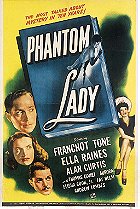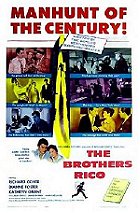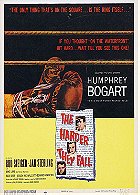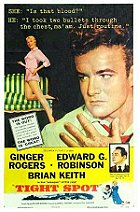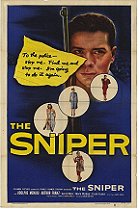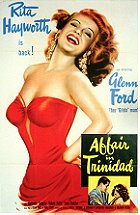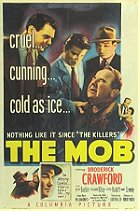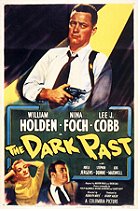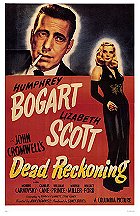A near nihilistic obsession with fatalism pervades noir as whole but particularly in the branch of “heist gone wrong.” The Killing practically announces its failed central conceit from the outset, The Asphalt Jungle follows all its thieves as they die, and into this gloomy outlook comes Criss Cross. This one not only follows the tragic outlines of those films but throws in reunited exes for good measure.
If nothing else, Criss Cross is a bit like drinking in noir straight from the hose. I mean, not only is Burt Lancaster the lead, but there’s Dan Duryea, best remembered for Scarlet Street and The Woman in the Window, and a pre-Munsters Yvonne De Carlo. There’s also Robert Siodmak behind the camera, best known for launching Lancaster’s movie career with The Killers, incidentally, and a Latin dance sequence that bursts with sensual promise and suspense.
In short, the journey of Criss Cross nearly doesn’t matter as everything here seems engineered from the start to provide an enthralling noir experience. And so, it does even if the episodic structure can become a bit thin at times. De Carlo’s vamp was once married to Lancaster but is now with Duryea, De Carlo and Lancaster reunite, Duryea pulls him in on an armored car heist, and things spiral out from there.
It nearly doesn’t matter what happens as every moment is seemingly signaling towards a very bleak end for all involved. But it’s the tiny details and juicy parts for character actors along the way that you remember. Alan Napier, Alfred from the Adam West Batman, and Percy Helton, for example, provide a lot of color in their brief roles. But nothing tops the sight of De Carlo’s sweaty dancing to Esy Morales’ band with an uncredited Tony Curtis, in his first role. The camera lingers on her face and body and practically signifies one of the male gaze’s profound truths: that the female body in motion can ensnare the heterosexual male psyche like nothing else.
 Login
Login
 Home
Home 95 Lists
95 Lists 1531 Reviews
1531 Reviews Collections
Collections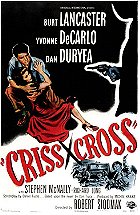
 0 comments,
0 comments, 